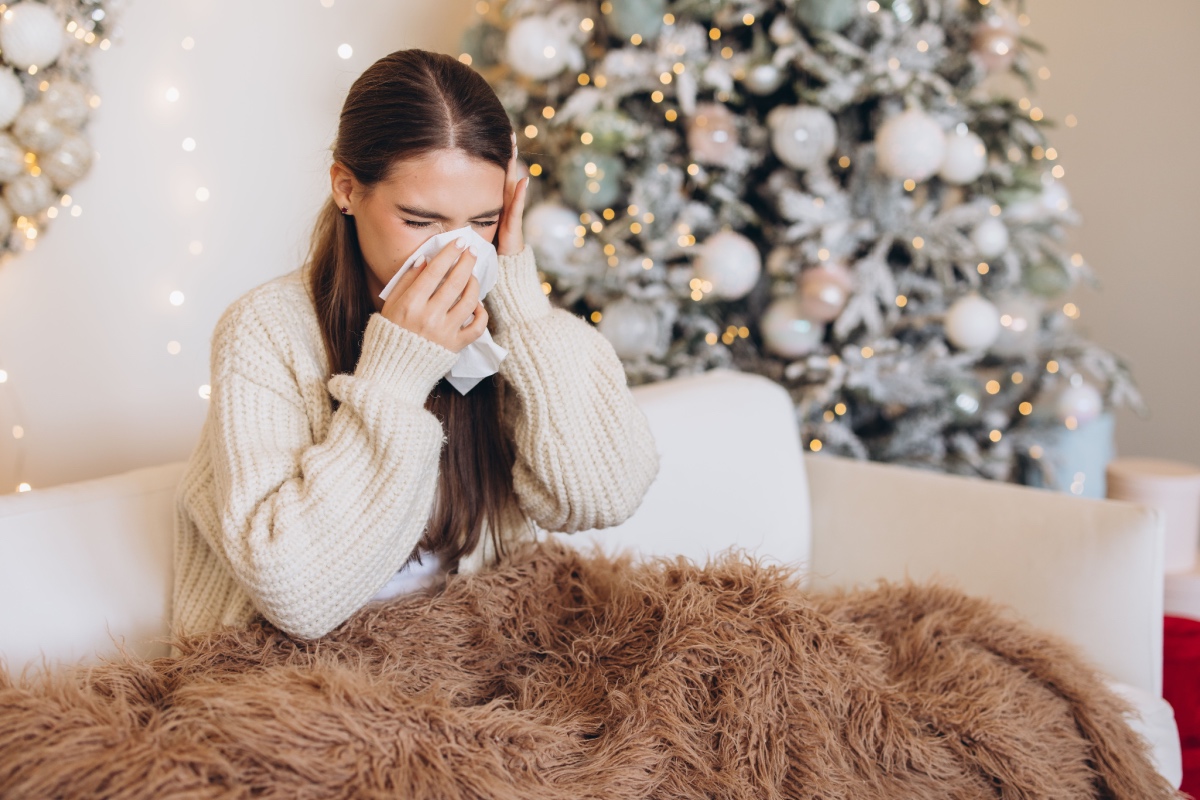Heating systems are essential for maintaining a comfortable indoor environment during winter, but their upkeep is often overlooked. Regular maintenance of your heating system is not just about efficiency and longevity—it also plays a critical role in ensuring a healthier indoor environment. Over time, heating systems can accumulate dust, allergens, and other contaminants circulating through your home. These irritants can exacerbate allergies and respiratory issues without proper care, making the cold months even more challenging.
Neglecting maintenance impacts the performance of your heating system but also compromises indoor air quality. Regular inspections, cleanings, and filter replacements by Infinity Heating and Cooling experts like us can mitigate these risks, allowing your system to function optimally while reducing airborne allergens.
The Link Between Heating Systems and Allergies
Heating systems recirculate indoor air, often containing dust, pet dander, mold spores, and other allergens. When left unchecked, the system can become a reservoir for these particles, releasing them into the air every time it operates. This continuous circulation can aggravate symptoms for those with allergies or respiratory sensitivities. A poorly maintained heating system may also create conditions favorable for mold growth, mainly if moisture accumulates in ducts or other components.
Clogged filters and dirty air ducts reduce a system’s efficiency and force it to work harder, leading to increased energy consumption and reduced air quality. By addressing these issues through regular maintenance, homeowners can create a safer, cleaner environment while enhancing the overall functionality of their heating system.
How Heating Maintenance Improves Indoor Air Quality
Some common heating maintenance steps to improve indoor air quality include the following:
- Filter Replacements—One of the simplest yet most impactful aspects of heating maintenance is replacing or cleaning air filters. Over time, filters become saturated with dust and debris, obstructing airflow and allowing allergens to bypass the filtration system. Regularly changing filters ensure that harmful particles are effectively trapped, preventing them from circulating throughout your home.
- Duct Cleaning – Dust, mold, and other contaminants often settle in air ducts, where they can build up over time. Professional duct cleaning removes these pollutants, significantly improving air quality and reducing the risk of allergy flare-ups during winter.
- Eliminating Mold Growth –A heating system that isn’t regularly inspected can harbor mold in damp areas, such as condensate drain lines or improperly sealed ductwork. Mold spores are a common allergen and can cause serious health issues if left unaddressed. Maintenance helps identify and resolve these issues early.
Preventing Allergies Through Better System Efficiency
Regular maintenance ensures that your heating system operates at peak efficiency, directly impacting indoor air quality. An efficient system reduces energy costs and minimizes the dust and allergens stirred up during operation. For example:
- Balanced Airflow -Proper airflow prevents the accumulation of dust and allergens in certain areas of your home, maintaining a consistent and clean environment.
- Reduced Circulation of Irritants – A well-maintained system effectively filters and removes airborne particles, limiting exposure to allergens.
Addressing Common Heating System Issues That Affect Allergies
Several issues can arise in heating systems that directly affect allergies. Identifying and addressing these problems through routine maintenance is key:
- Leaky Ducts -Air leaks in the ductwork can introduce dust and contaminants from attics or crawl spaces into the system, reducing air quality. Sealing these leaks is an integral part of maintenance.
- Dirty Burners and Heat Exchangers—Buildup on burners or heat exchangers can release fine particles into the air, exacerbating allergy symptoms. Regular cleaning helps avoid this.
- Malfunctioning Humidifiers—Many heating systems include humidifiers to maintain proper moisture levels. When not correctly maintained, these devices can promote mold and bacterial growth, worsening indoor air quality.
The Importance of a Proactive Maintenance Schedule
A proactive maintenance schedule reduces the risk of system breakdowns and helps maintain a healthier home environment. Homeowners should aim to have their heating systems inspected and serviced at least once a year, ideally before winter. Key components that require attention include:
- Air filters (cleaning or replacement)
- Ducts (inspection and cleaning)
- Furnace and heat exchanger (cleaning and tuning)
- Thermostat (calibration for accurate control)
- Humidifiers and condensate lines (inspection and cleaning)
The Importance Of Professional Heating System Maintenance
While homeowners can manage some aspects of heating system care, such as changing filters, through the inspection and maintenance process, it requires the expertise of licensed professionals. Certified HVAC technicians are trained to identify potential issues, clean and repair components, and ensure your system operates efficiently.
Regular professional care is an investment in comfort and health, allowing you to enjoy the colder season without compromising air quality. For information about our HVAC services, call Infinity Heating and Cooling at (702) 291-2000 or fill out our form online.


